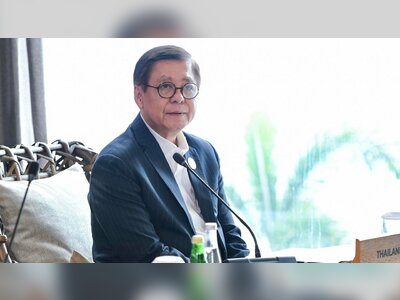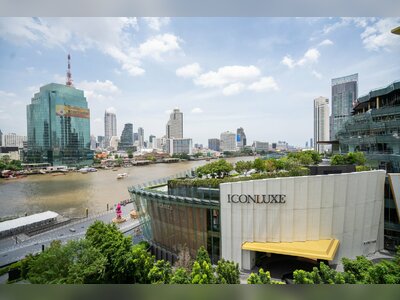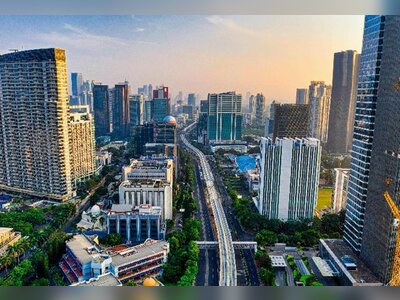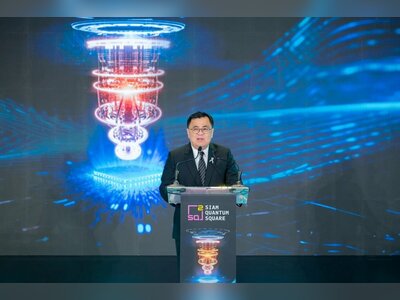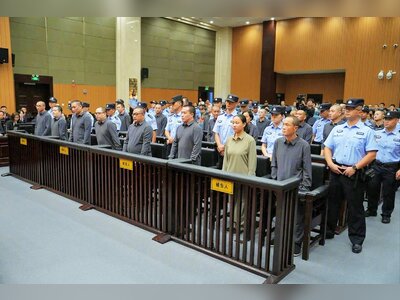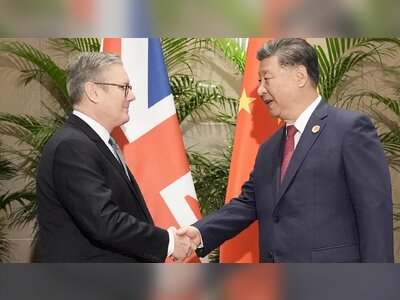
Thailand's Political Landscape: People’s Party and Pheu Thai Party in the Spotlight
As Thailand's next election approaches, political dynamics between the People’s Party and Pheu Thai Party intensify, highlighting past local elections and ongoing controversies.
The political arena in Thailand is witnessing intensified competition between two of its major players: the opposition People's Party (PP) and the ruling Pheu Thai Party.
This comes as the country gears up for its next general election, slated to occur in less than two years.
Observers suggest that the cherished alliance between these two parties is faltering, raising questions about future political alignments.
Recent local elections, specifically the chairmanship contests for provincial administrative organizations (PAOs), have become a focal point for both parties.
These elections, which took place following the resignation of several PAO chairmen seeking early reelection, revealed significant insights into the current political climate.
Despite a lack of victories in these elections for the People's Party, and a noted improvement in voter support in some areas like Udon Thani compared to the 2023 general election, their inability to secure local wins has generated discussions about their electoral strategy.
While the People's Party remains focused on urban-centered social media campaigns, Pheu Thai has gained traction in rural areas through policies that resonate with local issues and concerns—areas where social media influence is less pronounced.
These dynamics underscore the distinction between general elections and local PAO contests, with the latter often seen as less indicative of national political trends due to differing voter behaviors and participation levels.
The Pheu Thai Party's strategy has been bolstered by the presence and active involvement of former premier Thaksin Shinawatra, who has been campaigning across provinces to solidify support.
His efforts are a response to Pheu Thai's strong performance in recent PAO elections, attributed in part to reconnecting with influential political families and reigniting its network of red-shirt supporters, which had waned during Thaksin's long absence due to self-imposed exile.
Compounding the political landscape, Thaksin's extended stay at the Police General Hospital instead of serving time in prison remains a contentious issue.
Following his initial eight-year sentence, later commuted to one year, critics question whether his medical conditions justified the preferential treatment he received.
This controversy has grown under the scrutiny of multiple investigations, including those by the National Anti-Corruption Commission (NACC) and the Medical Council of Thailand (MCT), with allegations of ethical breaches by state officials and healthcare professionals.
Observers note that such investigations could have far-reaching implications for those involved.
Jatuporn Prompan, a former leader of the red-shirt movement, has expressed confidence that the ongoing inquiries will uncover any misconduct or leniency shown towards Thaksin.
Concurrently, the People's Party has put forth criticisms towards Prime Minister Paetongtarn Shinawatra over transparency and accountability, further inflaming opposition between the two major parties.
With looming elections and deep-seated political rivalries, Thailand’s current political environment remains charged as parties vie for broader support and address long-standing controversies.
This comes as the country gears up for its next general election, slated to occur in less than two years.
Observers suggest that the cherished alliance between these two parties is faltering, raising questions about future political alignments.
Recent local elections, specifically the chairmanship contests for provincial administrative organizations (PAOs), have become a focal point for both parties.
These elections, which took place following the resignation of several PAO chairmen seeking early reelection, revealed significant insights into the current political climate.
Despite a lack of victories in these elections for the People's Party, and a noted improvement in voter support in some areas like Udon Thani compared to the 2023 general election, their inability to secure local wins has generated discussions about their electoral strategy.
While the People's Party remains focused on urban-centered social media campaigns, Pheu Thai has gained traction in rural areas through policies that resonate with local issues and concerns—areas where social media influence is less pronounced.
These dynamics underscore the distinction between general elections and local PAO contests, with the latter often seen as less indicative of national political trends due to differing voter behaviors and participation levels.
The Pheu Thai Party's strategy has been bolstered by the presence and active involvement of former premier Thaksin Shinawatra, who has been campaigning across provinces to solidify support.
His efforts are a response to Pheu Thai's strong performance in recent PAO elections, attributed in part to reconnecting with influential political families and reigniting its network of red-shirt supporters, which had waned during Thaksin's long absence due to self-imposed exile.
Compounding the political landscape, Thaksin's extended stay at the Police General Hospital instead of serving time in prison remains a contentious issue.
Following his initial eight-year sentence, later commuted to one year, critics question whether his medical conditions justified the preferential treatment he received.
This controversy has grown under the scrutiny of multiple investigations, including those by the National Anti-Corruption Commission (NACC) and the Medical Council of Thailand (MCT), with allegations of ethical breaches by state officials and healthcare professionals.
Observers note that such investigations could have far-reaching implications for those involved.
Jatuporn Prompan, a former leader of the red-shirt movement, has expressed confidence that the ongoing inquiries will uncover any misconduct or leniency shown towards Thaksin.
Concurrently, the People's Party has put forth criticisms towards Prime Minister Paetongtarn Shinawatra over transparency and accountability, further inflaming opposition between the two major parties.
With looming elections and deep-seated political rivalries, Thailand’s current political environment remains charged as parties vie for broader support and address long-standing controversies.


